Billy Fury
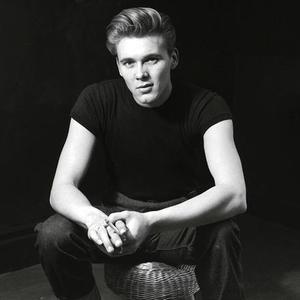
- Genre:
- Pop/Rock
- Meta styles:
- British Invasion, Rock & Roll/Roots
Billy Fury was born Ronald Wycherley in Liverpool, England. He was a sickly child who experienced his first bout of rheumatic fever at age six. That began chronic health problems which eventually took his life before age 45. Fury began music lessons, on the piano, at age 11. He got his first guitar at age 14. By 1955, the skiffle music boom had begun in England and Fury was leading his own local group, while still working on a tugboat and/or as a stevedore. By 1958, he had won a talent competition and had begun to write his own songs.
Fury began music lessons, on the piano, at age 11. He got his first guitar at age 14. By 1955, the skiffle music boom had begun in England and Fury was leading his own local group, while still working on a tugboat and/or as a stevedore. By 1958, he had won a talent competition and had begun to write his own songs.
In a story which was legend among the British youth of the period, Fury was discovered by impressario Larry Parnes on October 1, 1958. That night, Fury attended a performance of The Larry Parnes Extravaganza, hoping to offer his songs to Marty Wilde, one of the featured performers and a well-known rock-&-roll star because of his appearances on the television series, "Oh Boy!" Fury did get backstage, and was seen by Parnes while performing one of his own songs for Wilde. Parnes booked Fury to appear on the Extravaganze that same night and the rest, as they say, is history - the applause which Fury received earned him a permanent spot on the tour and Parnes as his agent. Parnes' established proceedure was to give his singers stage names representing emotions and attributes: Marty Wilde, Johnny Gentle, Vince Eager. Thus, Ronald Wycherley became Billy Fury.
By the British standards of the day, Fury's early performances were so suggestive that a curtain was brought down on one of his shows. This forced Fury to restrain himself from his more overtly sexual stage moves. Fury's recording career began in early, 1959, with "Maybe Tomorrow," a song which he had written and which charted soon after its release. Fury's television debut came soon after in "Strictly For Sparrows." After that, Fury became a fixture on musical showcases such as "Oh Boy!"
After a string of hit singles, Fury cut his debut album, "The Sound Of Fury," in 1960. Fury's back-up players included Joe Brown, one of England's few serious rockabilly players at that time, and drummer Andy White, who later played on the original release version of The Beatles' debut single "Love Me Do." The album sold well and has been re-released a half-dozen times since, including a CD version in the early 1990s. In an interview during the '70s, Keith Richards declared "The Sound of Fury" one of the greatest rock 'n roll albums of its era.
In 1960, Decca Records decided to soften Fury's sound, at least on his singles, and Fury's early 60's recordings took on a more sophisticated air. "Talkin' In My Sleep" and "Don't Worry," backed by The Four Kestrels, were two results of this change. "Halfway To Paradise," in 1961, began Fury's brief assault on the top of the charts. The orchestrated "Halfway to Paradise" hit #3. A few months later, "Jealousy" reached #2; "I'd Never Find Another You" reached #5. By 1962, Fury was England's top rock-n-roll attraction, backed by the legendary Tornadoes of "Telstar" fame, appearing regularly on television. During this time, he also ventured to America where he got to meet Elvis Presley on the set of "Girls, Girls, Girls." (Many considered Fury to be the closest that England came to producing its own Elvis Presley, capable of dark, brooding, sexual performances, as well as gentle, vulnerable ballads.)
It was the arrival of another group from Liverpool, The Beatles, which ended Fury's dominance of the British teen music scene. (Interesting aside - The Beatles had tried, and failed, to become Fury's back-up during one of his tours.) Nonetheless, Fury continued to chart records into 1964. During that summer, he starred in a semi-autobiographical movie, "I've Got a Horse." Later the same year, he got his own television show. By 1965, however, Fury's health had begun to deteriorate and his records seldom charted better than the mid-20s.
Fury left DECCA Records in 1966 and signed a five-year contract with EMI's Parlophone Records. During those five years, Fury saw some very modest success but nothing like the frenzied stardom of his first seven years in music.
Fury underwent heart surgery in 1970 and in 1971, but resumed performing in 1972. England's rock-n-roll revival during the mid-70s saw the re-release of "The Sound of Fury," as well as other parts of Fury's catalog. During those years, Fury toured England with his one-time idol Marty Wilde. When he wasn't performing, Fury looked after his other interests, including wildlife preservation.
Another heart operation, in 1976, essentially ended Fury's musical career although there were still occasional recordings and television appearances. In 1978, Fury re-recorded his classic songs for K-Tel; in the early '80s he recut his old hits yet again for Polydor, which, by that time, owned DECCA Records. In 1981, a single, "Be Mine Tonight," just missed the British charts.
On March 4, 1982, Fury collapsed and nearly died while working on his farm. Nonetheless, that summer, he again went back on tour and placed the singles "Love Or Money" and "Devil Or Angel" on the English charts. Plans were made for a new album and a national tour, but Fury was found unconscious in his home on January 28, 1983. He died that same day in hospital.
A posthumous single, "Forget Him," charted in England later that same year. Numerous re-issues, as well as releases of previously unreleased material, have continued to appear in the compact disc era, most recently the "40th Anniversary Anthology," a double CD set and Beat Goes On's two-on-one CD of "We Want Billy" and "Billy."
- Sort by
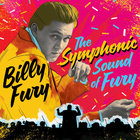
The Symphonic Sound Of Fury
- Year:
- 2018
- Tracks:
- 14
- Bitrate:
- 320 kbps
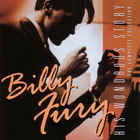
His Wondrous Story: The Complete Collection
- Year:
- 2007
- Tracks:
- 28
- Bitrate:
- 320 kbps
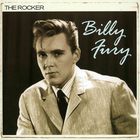
The Rocker
- Year:
- 2005
- Tracks:
- 20
- Bitrate:
- 192 kbps
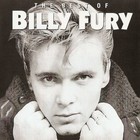
The Best Of Billy Fury
- Year:
- 1999
- Tracks:
- 16
- Bitrate:
- 320 kbps
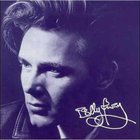
The 40Th Anniversary Anthology CD2
- Year:
- 1998
- Tracks:
- 31
- Bitrate:
- 128 kbps
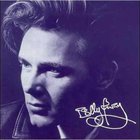
The 40Th Anniversary Anthology CD1
- Year:
- 1998
- Tracks:
- 32
- Bitrate:
- 128 kbps
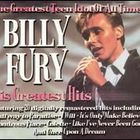
Hit Parade
- Year:
- 1988
- Tracks:
- 20
- Bitrate:
- 160 kbps
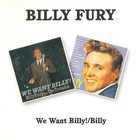
We Want Billy! / Billy (Vinyl)
- Year:
- 1963
- Tracks:
- 30
- Bitrate:
- 320 kbps
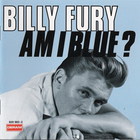
Am I Blue?
- Year:
- 1963
- Tracks:
- 20
- Bitrate:
- 160 kbps
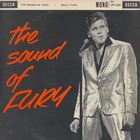
The Sound Of Fury (Vinyl)
- Year:
- 1960
- Tracks:
- 10
- Bitrate:
- 320 kbps
 Cliff Richard
Cliff Richard  Georgie Fame
Georgie Fame  Eddy Mitchell
Eddy Mitchell  Marty Wilde
Marty Wilde  Adam Faith
Adam Faith  Bobby Vee
Bobby Vee  Craig Douglas
Craig Douglas  Gilbert O'sullivan
Gilbert O'sullivan